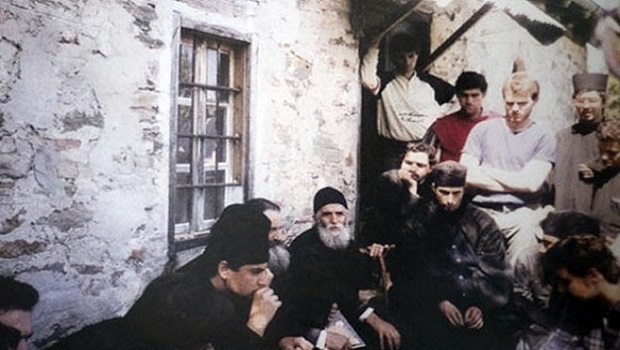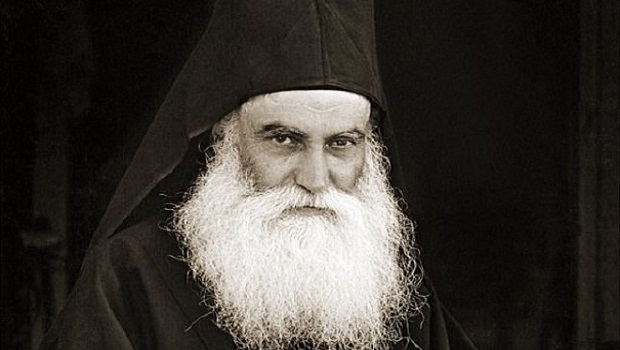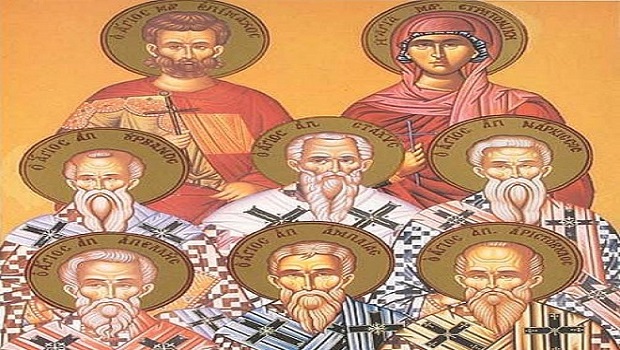Metropolitan Ioïl (Frangkakos) of Edessa, Pella, and Almopia
‘As you did it to one of the least of these my brethren, you did it to me’.
In the parables used by the Lord, He repeats the phrase ‘the kingdom of heaven is like… (Matth. 22,2) that is, He compares the kingdom of heaven with ten virgins, with a precious pearl, with a field or a lost coin and so on. In today’s Gospel, he speaks in a parable, but shows a real situation and His own revealed self, which is why He says ‘when the son of man comes in his glory’ (25,31), which means that the reading fully expresses the truth concerning the final judgment of humankind.
God’s mercy and our loving-kindness
One property of God is His mercy. We’re constantly being pursued by God’s mercy. Besides, human beings, who were made in the image of God, have many points in common with our Creator, but it’s particularly that of loving-kindness and benefiting others that brings us closest to the Lord. Christ lived His life constantly doing good to others and ‘healed everyone’ (Luke 6, 19). He even gave Himself as a ‘ransom for many’ (Mark 10, 45), as an example and fruit of His great love for us. Whether our poor fellow human beings are hungry, sick or needy, they’re brothers and sisters of Christ, since they’ve ‘put Him on’, ‘in terms of the inner person’, according to Saint Gregory the Theologian. They have the same baptism as we do, they share the same grace, they’re subject to the same laws of God, they take part in the same divine Eucharist and have the same hopes as we do. Saint John Chrysostom emphasizes this wonderfully: ‘baptism and participation in the divine mysteries makes brothers and sisters for us’. It’s a kind heart that makes a person an heir or heiress of the kingdom of God, rather than the possession any great gift, such as for example, that of far-sight, great wisdom or anything else.
A great ascetic of the desert, Saint Isaac the Syrian, describes what a loving heart should be like, in other words, how we can come to love other people. Our heart should burn with love for the whole of creation. We should be painfully engaged on behalf of people, of birds, of animals, even of the demons, if that’s possible. In people who have such a heart, tears flow without ceasing. They can’t bear to hear about unhappiness or to see any harm being done without being wracked, without weeping. They pray with tears even for their enemies and also for nature. So that everyone and everything may enjoy God’s mercy. So, you see, a single tear can give us the chance to make the kingdom of God our own.
How is our love for others expressed?
Bishop Dionysios of Kozani, now departed, wrote that ordinary events in our everyday life are what will judge us. Not wisdom, not political power and authority, not material wealth and money, not bodily strength and beauty. It’s not these things that will have merit on the day of judgement. It’ll be simple things that we come across in our daily lives. A plate of food, a gift of money, support for somebody who’s going through a hard time, even just a visit to somebody who’s in pain. All of these can be done on the quiet, without a fanfare and public display. Christians who believe and who activate their faith keep themselves to themselves and avoid the pompous exhibitions to which we’ve become accustomed these days. The only thing we can take into the next life is our loving-kindness, which is our defence before God.
Today’s Gospel addresses all of us who honour the image of Christ, but who forget to honour His living image, which is the human person. Let’s heed Saint Gregory the Theologian who urged us: ‘Don’t become rich in wealth alone, but also in devotion…’. May we become for every poor person we come across what God is for everyone, so that we, too, may find His mercy.
Source: pemptousia.com
ABOUT THE ORTHODOX CHRISTIAN NETWORK
Orthodox Christian Network (OCN) is a 501(c)3 and an official agency of the Assembly of Canonical Bishops of the United States of America . It is a recognized leader in the Orthodox Media field and has sustained consistent growth over twenty-two years. We have worked to create a community for both believers and non believers alike by sharing the timeless faith of Orthodoxy with the contemporary world through modern media. We are on a mission to inspire Orthodox Christians Worldwide. Click to signup to receive weekly newsletter.
Join us in our Media Ministry Missions! Help us bring the Orthodox Faith to the fingertips of Orthodox Christians worldwide! Your gift today will helps us produce and provide unlimited access to Orthodox faith-inspiring programming, services and community. Don’t wait. Share the Love of Orthodoxy Today!
OCN has partnered with Pemptousia. A Contemporary post-modern man does not understand what man is. Through its presence in the internet world, Pemptousia, with its spirit of respect for beauty that characterizes it, wishes to contribute to the presentation of a better meaning of life for man, to the search for the ontological dimension of man, and to the awareness of the unfathomable mystery of man who is always in Christ in the process of becoming, of man who is in the image of divine beauty. And the beauty of man springs from the beauty of the Triune God. In the end, “beauty will save the world”.




0 Comments